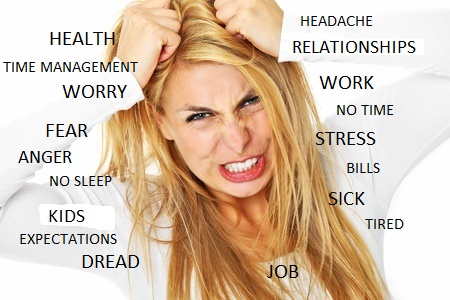 These 6 common EXPECTATIONS increase our frustration and stress. Change them and you’ll change your levels of frustration and stress!
These 6 common EXPECTATIONS increase our frustration and stress. Change them and you’ll change your levels of frustration and stress!
-
Life should be fair.
We’ve all heard a million times that life isn’t fair, but in spite of that, we’re often upset when things aren’t fair.
Accept that unfair things will happen in your life all the time. That’s life.
People think: “It should be this way or that way.”
The truth is: At work, things won’t always be fair. In your relationship, things won’t always be fair. The amount of work you have to do versus what someone else has to do won’t always be fair.
If you get stuck on the expectation of “it should be fair” you will cause a lot of unnecessary anguish in your life.
Try this instead:
Switch your internal voice to: “It would be nice if everything was fair but it won’t be and That’s Life!
-
Everyone should like me.
No matter how decent, kind, respectable and polite you are, there will be people who don’t like you, and some people that you just don’t get along with.
When you think that everyone should like you, you end up with hurt feelings when you shouldn’t (you can’t win them all).
Try this instead:
Just focus on being the best person you can and accept that some people will like you and some people won’t. That’s life!
-
People should agree with me.
Too many people get offended when someone doesn’t agree with them.
This one can be tough. Sure, you know what you’re talking about, and for that reason, people should take you seriously, but expecting people to agree with you is another story.
Something that’s obvious to you might not be so obvious to someone with different experiences and a different agenda, so stop being offended when people disagree with you, and stop assuming that there is only one right answer (yours). Instead, focus on how you can find solutions that give everyone what they need.
Remember that everyone is entitled to their own opinion and their own perspective.
Try this instead:
Take time to listen to their opinion and truly try to understand their perspective versus trying to convince them to see yours. You may learn something or come up with a better way of thinking yourself!
-
People should know what I’m trying to say.
People can’t read your mind, and what you’re trying to say is rarely what other people hear. You can’t expect people to understand you just because you’re talking—you have to be clear.
Whether you’re asking someone to do something or trying to explain something, it’s quite likely that they won’t truly understand–they may need more information or they may need it explained to them in a different way.
Yet, we often get upset because we expect them to “get what we are saying” and we think they “should” understand us right away.
Try this instead:
Be patient with others and realize that sometimes you may need to add more information or approach it from a different angle to help people understand your communication.
-
Things should and will make me happy.
Sure, things can make life more fun and comfortable in the short run, but they can’t make you happy in the long run.
Too many of us expect a future event to make us happy– I’ll be happy when: “I get that promotion”.. “I lose weight,” “I get a new job,” “that co-worker leaves,” “my kids get older,” “I have more money,” “my spouse changes,” “there’s less work to do,” “when this project is done” and on and on the list goes.
Try this instead:
Look more deeply into the real cause of your unhappiness.
If you don’t fix what’s going on inside, no external event or item is going to make you happy, no matter how much you want it to.
-
I should be able to change him/her.
There’s only one person in this world you can truly change—yourself—and even that takes a tremendous amount of effort.
The only way that people change is when they desire it and make up their minds to make the change.
Still, it’s tempting to try to change someone because we think they need to be different than they are.
Try this instead:
Let go of trying to change others….. It can cause you a lot of frustration. Spend so much time and focus on making improvements in yourself that you don’t have time to criticize others.
Consider how hard it is to change yourself and it will help remind you that you have little chance of changing others.
Bringing it all together.
When you change these six expectations in your life, you’ll let it go of a lot of anxiety and frustration in your life.
|
If you’d like to learn mindfulness and mindset strategies to conquer stress and overwhelm in your life, or to improve a relationship, contact Fay to learn about her 6 week coaching program or speaking and training events.
Fay works with individuals, couples and organizations to create mindful, positive, peaceful relationships,
both with yourself and others!
Contact Fay to set up a free, no obligation 30 minute consultation.
507-829-0181 or email fay@fayprairie.com
Your future self will thank you
for the investment you make now!!
Distance isn’t a factor as sessions can be by phone.
|
|
Join Fay on Facebook for
Daily Success Strategies:
“Change your Mind–Change your life”
https://www.facebook.com/PrairiePerspectives
|




